Filter by
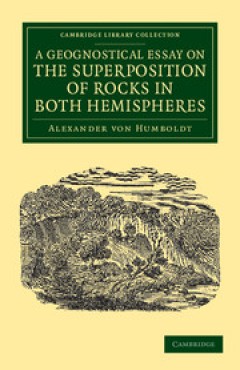
A Geognostical Essay on the Superposition of Rocks in Both Hemispheres
The explorer and multi-disciplinary scientist Alexander von Humboldt (1769–1859) was a prominent figure in the European scientific community of the eighteenth and nineteenth centuries and the first to make a scientific survey of South and Central America. His travels alone brought him widespread recognition, but the extensive field notes and research he undertook were developed further on his…
- Edition
- -
- ISBN/ISSN
- 9781139226875
- Collation
- -
- Series Title
- Cambridge Library Collection - Earth Science
- Call Number
- -
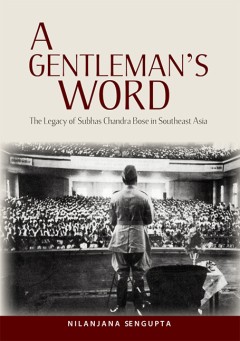
A Gentleman's Word The Legacy of Subhas Chandra Bose in Southeast Asia
The great Indian nationalist leader Subhas Chandra Bose arrived in Singapore in 1943 to revitalize the Indian National Army (INA). Taking the opportunity of the Japanese occupation of parts of Southeast Asia, he launched armed struggle against British colonial rule in India. Two years later, that attempt failed at the eastern gates of India. Yet, it was a temporary failure because the INA helpe…
- Edition
- -
- ISBN/ISSN
- 9789814379793
- Collation
- -
- Series Title
- Books and Monographs
- Call Number
- -

A Generation at Risk
With a Foreword by Desmond Tutu, Generation at Risk brings insightful perspectives from experienced practitioners and researchers on how a better future can be secured for the millions of children who are being orphaned or made vulnerable by HIV/AIDS. The current situation of these children is grim, and while there has been significant action by governments, international organizations, religio…
- Edition
- Geoff Foster,Carol Levine,John Williamson
- ISBN/ISSN
- 9781139164436
- Collation
- -
- Series Title
- -
- Call Number
- -
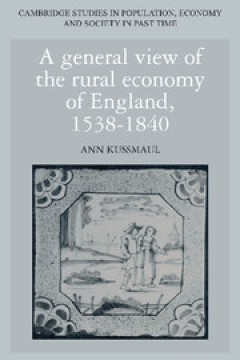
A General View of the Rural Economy of England, 1538–1840
In rural England prior to the Industrial Revolution people generally married when they were not busy with work. Parish registers of marriage therefore form an important and innovative source for the study of economic change in this period. Dr Kussmaul employs marriage dates to identify three main patterns of work and risk (arable, pastoral and rural industrial) and more importantly to show the …
- Edition
- -
- ISBN/ISSN
- 9780511560675
- Collation
- -
- Series Title
- Cambridge Studies in Population, Economy and Society in Past Time
- Call Number
- -
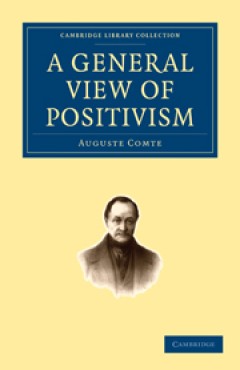
A General View of Positivism
In A General View of Positivism French philosopher Auguste Comte (1798–1857) gives an overview of his social philosophy known as Positivism. Comte, credited with coining the term 'sociology' and one of the first to argue for it as a science, is concerned with reform, progress and the problem of social order in society. In this English edition of the work, published in 1865, he addresses the p…
- Edition
- -
- ISBN/ISSN
- 9780511692888
- Collation
- -
- Series Title
- Cambridge Library Collection - Religion
- Call Number
- -
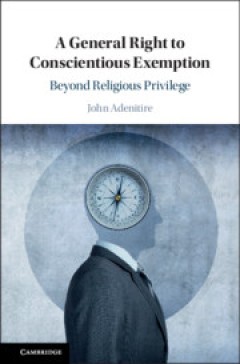
A General Right to Conscientious Exemption
The book argues that there is in the US, Canada and UK, a general right to conscientious exemption available to a person who objects to any legal obligation whatsoever on the basis of a religious or non-religious conscientious belief. The book provides a liberal defence of this right and argues that it should be considered a defining feature of a liberal democracy. A general right to conscienti…
- Edition
- -
- ISBN/ISSN
- 9781108777780
- Collation
- -
- Series Title
- -
- Call Number
- -
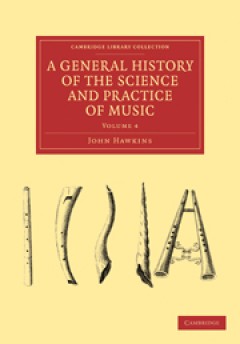
A General History of the Science and Practice of Music
Sir John Hawkins (1719–1789), lawyer, friend of Samuel Johnson and member of the Academy of Ancient Music, published his pioneering five-volume history in 1776 just after the first volume of Burney's. Hawkins' work suffered badly in the resulting competition between the two, partly because of his difficult personality, partly because of the scholarly style of the writing contrasting with Burn…
- Edition
- -
- ISBN/ISSN
- 9780511997549
- Collation
- -
- Series Title
- Cambridge Library Collection - Music
- Call Number
- -
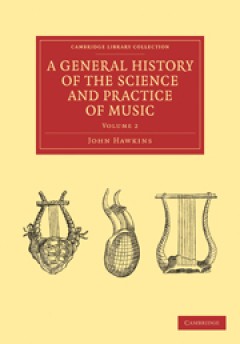
A General History of the Science and Practice of Music
Sir John Hawkins (1719–1789), lawyer, friend of Samuel Johnson and member of the Academy of Ancient Music, published his pioneering five-volume history in 1776 just after the first volume of Burney's. Hawkins' work suffered badly in the resulting competition between the two, partly because of his difficult personality, partly because of the scholarly style of the writing contrasting with Burn…
- Edition
- -
- ISBN/ISSN
- 9780511997525
- Collation
- -
- Series Title
- Cambridge Library Collection - Music
- Call Number
- -
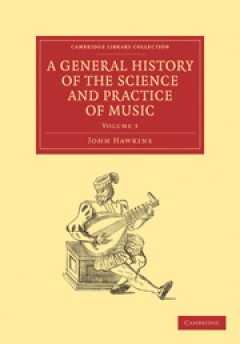
A General History of the Science and Practice of Music
Sir John Hawkins (1719–1789), lawyer, friend of Samuel Johnson and member of the Academy of Ancient Music, published his pioneering five-volume history in 1776 just after the first volume of Burney's. Hawkins' work suffered badly in the resulting competition between the two, partly because of his difficult personality, partly because of the scholarly style of the writing contrasting with Burn…
- Edition
- -
- ISBN/ISSN
- 9780511997532
- Collation
- -
- Series Title
- Cambridge Library Collection - Music
- Call Number
- -
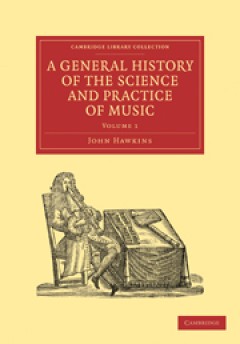
A General History of the Science and Practice of Music
Sir John Hawkins (1719–1789), lawyer, friend of Samuel Johnson and member of the Academy of Ancient Music, published his pioneering five-volume history in 1776 just after the first volume of Burney's. Hawkins' work suffered badly in the resulting competition between the two, partly because of his difficult personality, partly because of the scholarly style of the writing contrasting with Burn…
- Edition
- -
- ISBN/ISSN
- 9780511997518
- Collation
- -
- Series Title
- Cambridge Library Collection - Music
- Call Number
- -
 Computer Science, Information & General Works
Computer Science, Information & General Works  Philosophy & Psychology
Philosophy & Psychology  Religion
Religion  Social Sciences
Social Sciences  Language
Language  Pure Science
Pure Science  Applied Sciences
Applied Sciences  Art & Recreation
Art & Recreation  Literature
Literature  History & Geography
History & Geography